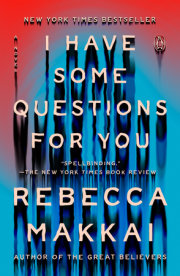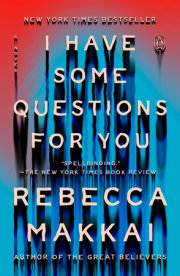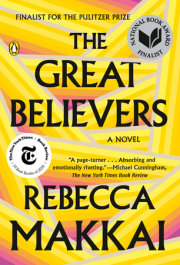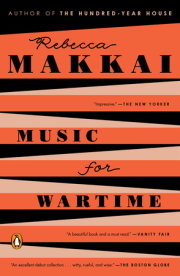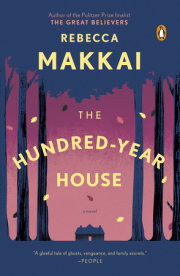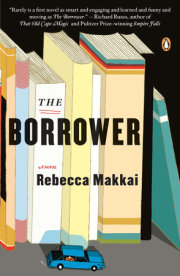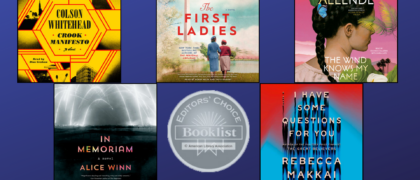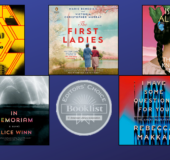1.
I first watched the video in 2016. I was in bed on my laptop, with headphones, worried Jerome would wake up and I'd have to explain. Down the hall, my children were sleeping. I could have gone and checked on them, felt their warm cheeks and hot breath. I could have smelled my daughter's hair-and maybe the scent of damp lavender and a toddler's scalp would have been enough to send me to sleep.
But a friend I hadn't seen in twenty years had just sent me the link, and so I clicked.
Lerner and Loewe's Camelot. I was both stage manager and tech director. One fixed camera, too close to the orchestra, too far from the unmiked adolescent singers, 1995 VHS quality, some member of the AV club behind the lens. And my God, we knew we weren't great, but we weren't even as good as we thought we were. Whoever uploaded it two decades later, whoever added the notes below with the exact time markers for when Thalia Keith shows up, had also posted the list of cast and crew. Beth Docherty as a petite Guinevere, Sakina John glowing as Morgan le Fay with a crown of gold spikes atop her cornrows, Mike Stiles beautiful and embarrassed as King Arthur. My name is misspelled, but it's there, too.
The curtain call is the last shot where you clearly see Thalia, her dark curls distinguishing her from the washed-out mass. Then most everyone stays onstage to sing "Happy Birthday" to Mrs. Ross, our director, to pull her up from the front row where she sat every night jotting notes. She's so young, something I hadn't registered then.
A few kids exit, return in confusion. Orchestra members hop onstage to sing, Mrs. Ross's husband springs from the audience with flowers, the crew comes on in black shirts and black jeans. I don't appear; I assume I stayed up in the box. It would have been like me to sit it out.
Including the regrouping and singing, the birthday business lasts fifty-two seconds, during which you never see Thalia clearly. In the comments, someone had zoomed in on a bit of green dress at one side of the frame, posted side-by-side photos of that smear of color and the dress Thalia wore-first covered in gauze as Nimue, the enchantress, the Lady of the Lake, and then ungauzed, with a simple headdress, as Lady Anne. But there were several green dresses. My friend Carlotta's was one. There's a chance that, by then, Thalia was gone.
Most of the discussion below the video focused on timing. The show was set to begin at 7:00, but we likely started our mercifully abridged version five minutes late. Maybe more. The tape omitted intermission, and there was speculation on how long the intermission of a high school musical would last. Depending on what you believe about these two variables, the show ended sometime between 8:45 and 9:15. I should have known. Once, there would have been a binder with my meticulous notes. But no one ever asked for it.
The window the medical examiner allowed for Thalia's time of death was 8:00 p.m. to midnight, with the beginning of the slot curtailed by the musical-the reason the show's exact end time had become the subject of infinite fascination online.
I came here from YouTube, one commenter had written in 2015, linking to a separate video. Watch this. It PROVES they bungled the case. The timeline makes no sense.
Someone else wrote: Wrong guy in prison bc of racist cops in schools pocket.
And below that: Welcome to Tinfoil Hat Central! Focus your energies on an ACTUAL UNSOLVED CASE.
Watching the video twenty-one years after the fact, the memory that dislodged from my brain's dark corners was looking up lusty in the library dictionary with my friend Fran, who was in the chorus. To quiet our giggling about "The Lusty Month of May," Mrs. Ross had announced that "lusty simply means vibrant. You're welcome to look it up." But what did Mrs. Ross know about lust? Lust was for the young, not married drama teachers. But ("Holy apeshit," as Fran would have said, might have said), look, according to Webster, lusty indeed meant healthy and strong; full of vigor. One of the examples was a lusty beef stew. We fled the library laughing, Fran singing, "Oh, a lusty stew of beef!"
Where had I kept that memory, all those years?
The first time through the video I skipped around, really only watching the end; I had no desire to listen at length to teenage voices, poorly tuned string instruments. But then I went back-the same night, two a.m., my melatonin tablet failing-and watched all the parts with Thalia. Act I, Scene 2 was her only scene as Nimue. She appeared upstage in a dry ice fog, singing hypnotically behind Merlin. Something bothered me about how she kept glancing away from him as she sang, looking offstage right, as if she needed prompting. She couldn't have; all she needed to do was sing her one repetitive song.
I climbed carefully over Jerome to get his iPad from his nightstand and brought the video up there, this time zooming in on her face, making it larger if not clearer. It's subtle, but she looks irritated.
And then, as Merlin gives his farewell speech, bidding goodbye to Arthur and Camelot, she looks away again, nearly over her shoulder. She mouths something; it's not my imagination. Her lips start to close and then part, a formation that makes a W sound when I replicate it. She's saying, I'm almost sure, the word what. Maybe just to a stagehand, one of my crew holding up a forgotten prop. But what could have been so important in that moment, right before she exited?
As of 2016, no one in the comments section had fixated on this. They only cared about the timing of the curtain call, whether she was indeed onstage for that last minute. (That and how pretty she was.) Fifty-two seconds, their reasoning went, was enough for Thalia Keith to meet someone waiting backstage, to leave with that person before anyone saw.
At the very end of the tape: Our illustrious orchestra conductor-slash-music director, bow-tied, baton still in hand, begins an announcement no one's listening to: "Thank you all! As you leave-" but the video cedes to a buzz of gray lines. Presumably something about dorm check-in, or taking your trash with you.
Check out Guinevere the last two seconds, one comment reads. Is that a flask? I wanna be friends with Guinevere! I froze the video and yes, it's a silver flask Beth's holding aloft, maybe confident her friends will recognize it but any teachers in the audience will be too distracted to notice. Or maybe Beth was already too buzzed to care.
Another comment asks if anyone can identify the audience members passing the camera as they leave.
Another reads, If you watch the 2005 Dateline special, don't listen to anything they say. SO many errors. Also, it's THA- like the beginning of "thatch" or "thanks" and Lester Holt keeps saying THAY-lia.
Someone replies: I thought it was TAHL-ia.
Nope, nope, nope, the original poster writes. I knew her sister.
Another comment: This whole thing makes me so sad. Followed by three crying emojis and a blue heart.
I dreamed for weeks afterward not about Thalia's head turn, her mouthed question, but about Beth Docherty's flask. In my dreams, I had to find it in order to hide it again. I held my giant binder. My notes were no help.
The theater crowd had begged for that show-had brought it up constantly the year before, whenever Mrs. Ross had dorm duty. There'd been a Broadway revival in '93, and even those of us who hadn't seen it had heard the soundtrack, understood it entailed medieval cleavage, onstage kissing, fabulous solos. For me, it meant castle backgrounds, thrones, trees on casters-nothing tricky, no flesh-eating houseplant, no Ford Deluxe convertible to roll onstage. For the journalists of the future, it would mean endless easy metaphors. Boarding school as kingdom in the woods, Thalia as enchantress, Thalia as princess, Thalia as martyr. What could be more romantic? What's as perfect as a girl stopped dead, midformation? Girl as blank slate. Girl as reflection of your desires, unmarred by her own. Girl as sacrifice to the idea of girl. Girl as a series of childhood photographs, all marked with the aura of girl who will die young, as if even the third grade portrait photographer should have seen it written on her face, that this was a girl who would only ever be a girl.
The bystander, the voyeur, even the perpetrator-they're all off the hook when the girl was born dead.
On the internet and on TV, they love that.
And you, Mr. Bloch: I suppose it's been convenient for you, too.
2.
Against all odds, in January of 2018, I found myself hurtling back toward campus in one of those good old Blue Cabs that had picked me up so many times, so long ago, from the Manchester airport. My driver said he'd been making runs to Granby all day.
"They all went on vacation somewhere," he said.
I said, "They were home for holiday break."
He snorted, as if I'd confirmed his rotten suspicions.
He asked if I taught at Granby. I was startled, for a moment, that he hadn't taken me for a student. But here was my reflection in his rearview: a put-together adult with lines around her eyes. I said no, not really, I was just visiting to teach a two-week course. I didn't explain that I'd gone to Granby, that I knew the route we were traveling like an old song. It felt like too much information to lay on him in casual conversation. I didn't explain the concept of mini-mester, either, because it would sound twee, the exact kind of thing he'd imagine these spoiled kids getting up to.
It was Fran's idea to bring me back. Fran herself had barely left; after a few years away for college, grad school, time abroad, she returned to teach history at Granby. Her wife works in Admissions, and they live on campus with their sons.
My driver's name was Lee, and he told me he'd "been driving these Granby kids since their granddaddies went there." He explained that Granby was the kind of school you could only get into through family connections. I wanted to tell him this was dead wrong, but my window for correcting his assumption that I was an outsider had long passed. He told me that "these kids get up to trouble you wouldn't believe" and asked if I'd read the article "a few years back" in Rolling Stone. That article ("Live Free or Die: Drink, Drugs, and Drowning at an Elite New Hampshire Boarding School") came out in 1996, and yes, we'd all read it. We emailed each other about it from our college dorms, livid over its errors and assumptions-much as we would all text each other nine years later when Dateline dragged everything up again.
Lee said, "They don't supervise those kids a bit. Only thing I'm happy about, they have a rule against Uber."
I said, "That's funny, I've heard the opposite. About the supervision."
"Yeah, well, they're lying. They want you to come teach, they'll say whatever."
I'd only been back to Granby three times in the nearly twenty-three years since graduation. There was one early reunion when I lived in New York; I stayed an hour. I returned for Fran and Anne's wedding in Old Chapel in 2008. In July of 2013, I was in Vermont for a few days and came to see Fran, to meet her first baby. That was it. I'd avoided our tenth and fifteenth and twentieth, ignored the LA alumni meetups. It wasn't till that Camelot video surfaced and Fran looped me in on a subsequent group text, which devolved into theater memories, that I grew genuinely nostalgic for the place. I thought I'd wait for 2020, a reunion my classmates would show for-our twenty-fifth as well as the school's bicentennial. But then, this invitation.
It was convenient, too, that Yahav, the man I'd been having a dragged-out, desperate long-distance affair with, was just two hours away, teaching for the year at BU Law. Yahav had an Israeli accent and was tall and brilliant and neurotic. Our relationship wasn't such that I could simply fly out to see him. But I could find myself in the neighborhood.
Plus I wanted to see if I could do it-if, despite my nerves, my almost adolescent panic, I was ready to measure myself against the girl who'd slouched her way through Granby. In LA I knew in theory that I was accomplished-a sometime college professor with a lauded podcast, a woman who could make a meal from farmers' market ingredients and get her kids to school reasonably dressed-but I didn't particularly feel, on a daily basis, the distance I'd come. At Granby, I knew it would hit me hard.
So there was the money, and the guy, and my ego, and-below it all, a note too low to hear-there was Thalia, there was the way that ever since I'd watched that video, I'd felt just slightly misaligned.
In any case: They asked, I said yes, and here I was, buckled into the backseat letting Lee drive me to campus at ten miles over the speed limit.
He said, "What are you gonna teach them, some Shakespeare?"
I explained that I was teaching two classes: one on podcasting, another on film studies.
"Film studies!" he said. "They watching movies, or making them?"
I felt there was no answer that wouldn't make Lee think worse of both me and the school. I said, "The history of film," which was both correct and incomplete. I added that until recently I'd taught film studies at UCLA, which had the desired effect-I've used this trick before-of getting him straight onto Bruins football. I could make noises of agreement while he monologued. We only had twenty minutes left in the drive, and the odds were low now that he'd either ask me about podcasts or mansplain Quentin Tarantino.
The school had invited me specifically to teach the film class, and I'd volunteered to double up because it would mean twice the money-but also because I've never known how to sit still, and if I was leaving my kids and heading to the woods for two weeks, I didn't want to just sit around. The need to keep busy is both a symptom of high-functioning anxiety and the key to my success.
My podcast at the time was Starlet Fever, a serial history of women in film-the ways the industry chewed them up and spat them out. It was going as well as a podcast reasonably could, occasionally hitting top slots in various download metrics. There was a bit of money in it, and sometimes, thrillingly, a celebrity would mention us in an interview. My cohost, Lance, had been able to quit his landscaping gig, I'd been able to turn down the adjuncting crumbs UCLA threw my way, and we had a couple of literary agents offering representation if we wanted to cowrite a book. We were knee-deep in prep for our upcoming season, centered on Rita Hayworth, but it was research I could do from anywhere.
Copyright © 2023 by Rebecca Makkai. All rights reserved. No part of this excerpt may be reproduced or reprinted without permission in writing from the publisher.



